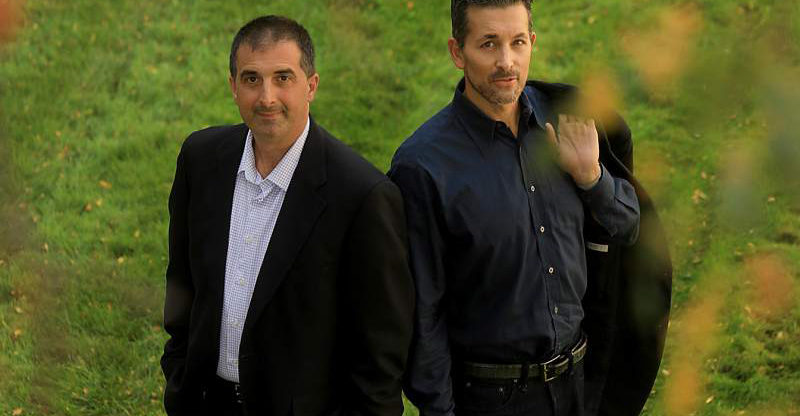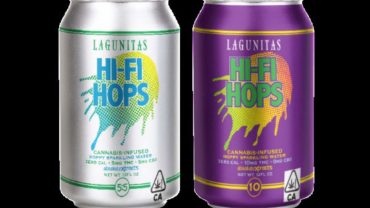Robert Eyler, dean of Sonoma State University’s School of Extended and International Education, imagines the day when the federal government lifts its prohibitions against cannabis.
It’s an uncertain possibility, but Eyler is nevertheless preparing for the day when, freed from the constraints of federal laws, universities will offer classes on everything from direct-to-consumer marketing for marijuana businesses to the medicinal uses of THC, the active ingredient of cannabis. The emerging cannabis industry has the potential to transform the North Coast, and SSU is positioning itself to train and professionalize the accompanying workforce, he said.
“We’re in a special place because of how cannabis grows here and to the north — we are in the flow where a lot of cannabis business activity takes place,” Eyler said. “We’re trying to recognize there will be a conversion of businesses into the mainstream. We know there will be workforce and development needs.”
The university has held two seminars on cannabis topics since March, a fledgling step toward the greater goal of bringing industry leaders and subject-area experts into a higher-education setting and offering a full-blown certificate program serving all aspects of the cannabis industry. The next event is planned for October: a seminar on cannabis industry investment and finance.
Eyler imagines a suite of programs akin to SSU’s Wine Business Institute, a program established 20 years ago to give future professionals the specific finance skills sought by the industry.
The institute last year drew 333 people to enroll in its certificate program and 773 people to its professional development and networking seminars.
The university has brought on former Santa Rosa cannabis cultivator Jason Snyder to serve as the university’s cannabis program director to help produce an educational series.
For $99, attendees earn extended learning credits and hear from experts on California’s medical marijuana laws, finance, human resources issues and what’s known about its medical benefits.
“There have been no standards in the industry and that’s a problem,” said Snyder, who holds an MBA from the University of Denver, which now offers undergraduate classes like cannabis business and journalism. “The end goal is to have the cannabis courses look like any other course.”
Snyder cultivated marijuana for dispensaries as part of collectives in San Francisco and Santa Rosa for several years until 2014. He’s since launched a company, SuperCool, specializing in heating, ventilation and air-conditioning systems and patented climate-controlled pods providing a sterile room environment for indoor cultivation.
Snyder said he approached SSU last year about developing a cannabis business focus because he saw firsthand how a lack of standards exposes people to unscrupulous practices. He described developing carefully crafted lease agreements with landlords who agreed to welcome his marijuana cultivation cooperative onto their properties, but then took advantage of federal laws to raise rents and avoid upkeep.
“That’s what drives me now,” Snyder said. “What are the lessons I learned that cultivators and other businesses can use to protect themselves?”
SSU tested the waters of cannabis-focused education events in March with a seminar by a San Rafael-based organization, United Patients Group, that provides a consulting service for those interested in using medical marijuana. The daylong panel, “Medical cannabis: A Clinical Focus,” was organized in collaboration with the nursing department and drew nearly 100 attendees.
The university held its first internally developed cannabis seminar June 9 — a look at the emerging state and local regulations with speakers including accountant Hank Levy, whose firm Henry Levy Group in Oakland has used the courts to challenge the Internal Revenue Service’s treatment of cannabis businesses.
The October finance and investing seminar offers a panel of executives from leading investment firms like Sausalito-based CannaAngels LLC and Poseidon Asset Management LLC of San Francisco. Attendees pay $99 and earn extended learning credits.
Snyder is talking with renowned medical marijuana practitioner, Dr. Jeffrey Hergenrather of Sebastopol, a founding member and president of the Society of Cannabis Clinicians, about developing a 16-week course focused on cannabis use among elderly patients. The course would have science prerequisites to enroll.
Today, campuses with any connection to federal dollars must be careful to avoid violating laws limiting how educational institutions engage with topics relating to drugs like cannabis, which is still classified by the federal government as a dangerous drug with no accepted medical use and a high potential for abuse.
“We are unable, based on the fact that cannabis is a Schedule 1 drug, from running classes that are explicitly about the supply chain,” Eyler said. “We can’t do classes on entrepreneurship, distribution, growing or selling. What we can do are seminars on all the topics around those topics.”
(This article originally appeared on pressdemocrat.com September 4, 2017)








